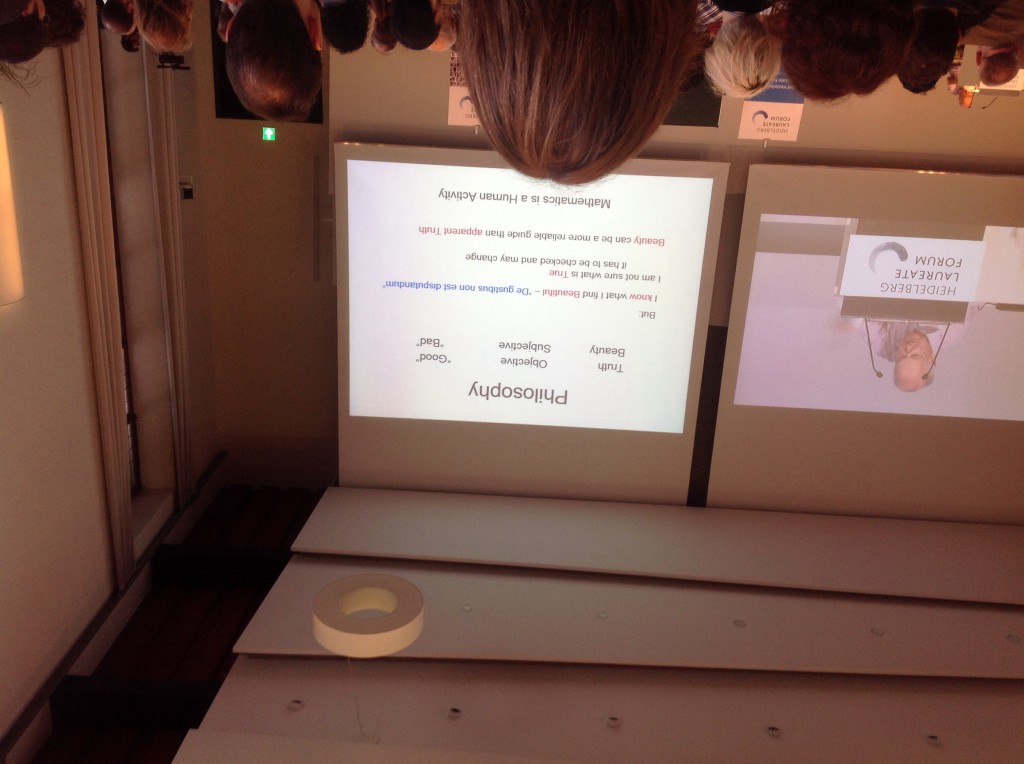Slow math
BLOG: Heidelberg Laureate Forum

When, in his HLF opening speech, Klaus Tschira recounted his experiences with a particularly speedy lecturer, I felt reminded of my own time as a student. In Tschira’s case, there was a lecturer who had the uncanny ability of writing each equation from the left and from the right simultaneously, finishing with the connecting “=” in the middle.
My own recollection is, admittedly, tied up with old technology. This was back in the days when overhead projectors were common. Some of them were equipped with a motorized feed, which could be used to move a fresh bit of transparency into the field of view. The professor I’m talking about switched the feed to the “on” position and left it there, rapidly scribbling his formulae onto the moving transparency.
Giving a truly great lecture is probably a skill that cannot be taught. Giving a reasonably good lecture, on the other hand, is bound to be as much a matter of craftsmanship as it is a matter of talent. Tschira’s admonition not to proceed to speedily is an important part of lecturer craftsmanship, and his comment that use of a blackboard is a natural way of slowing down to a listener-friendly speed will be seconded by everybody who has ever tried to follow a powerpoint talk with an uncomfortably high slide frequency.
Let’s see how this plays out at the HLF, with presentations given on complex topics, by experienced speakers – and a blackboard waiting to be used:


